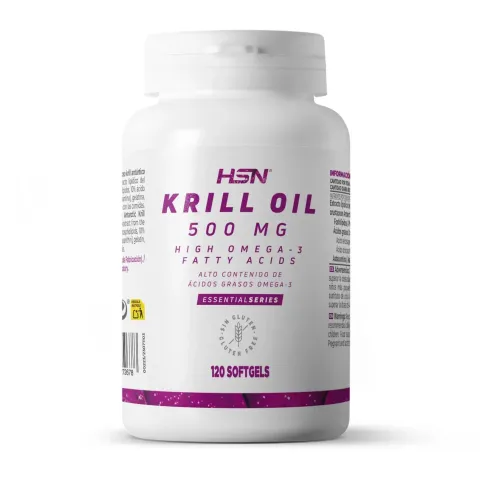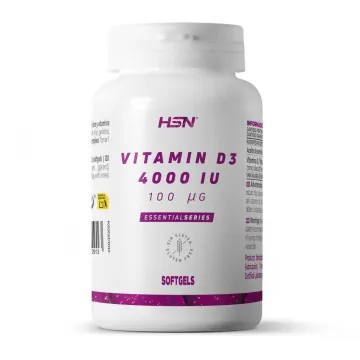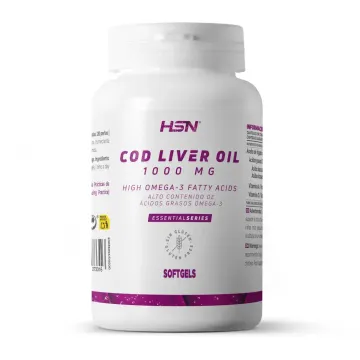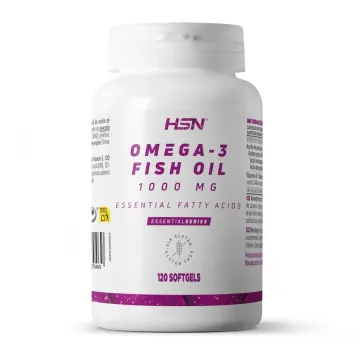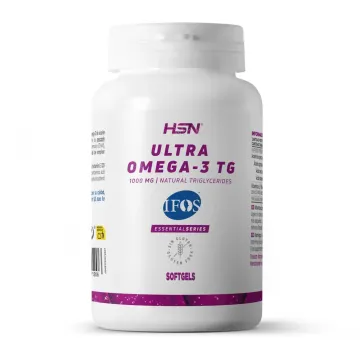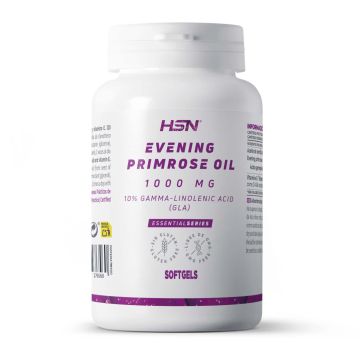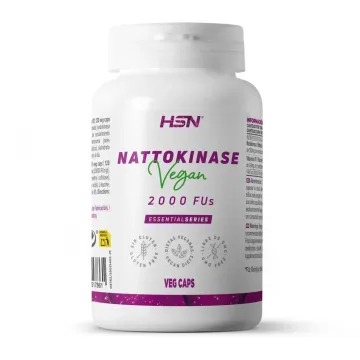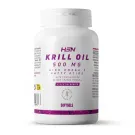Krill Oil - Omega-3 Phospholipids

Krill Oil 500mg from EssentialSeries is a dietary supplement presented in a handy small pearl format with a polished coating agent for easier swallowing without hassle. The krill oil used comes from the Euphasia superba species of Antarctic Krill, harvested exclusively from the Atlantic region and raw processed in Norway according to the highest historical expertise standards in krill product management.
Krill is a type of crustacean belonging to the Euphausiacea family, specifically the superba species, known as the krill used in human nutrition. This species is rich in proteins and omega-3 fatty acids, as well as astaxanthin, an important red pigment that acts as a powerful organic antioxidant. Proteins are not retained in krill oil, but omega-3s and astaxanthin are, hence its red color.
This dietary supplement is the best choice to provide omega-3 in the exclusive phospholipid form. A nutritional marvel gifted by nature.
Certified Norwegian Krill Oil
Krill lifestyle. Say no to fish farms. Natural krill is more powerful!
Krill is mainly destined for aquaculture farming, but native krill biomass is one of the largest on earth, amounting to hundreds of thousands of tons in the planet’s cold oceans.
It’s there, not in simulated growth in closed environments, where krill with the highest nutritional quality is found. And that’s where we get ours from.
Krill fishing is exclusively Antarctic, not from the seas around Japan, where krill grows in more treated and less pure waters. For our product development, we seek locations around glaciation regions to obtain clean and pure krill, from which we extract oil of the highest nutritional quality to complement your diet with the natural valuable components of this prized crustacean.
Krill harvesting and fishing. Following traditional methods without animal harm
Of course, we follow krill fishing and harvesting procedures that avoid mass harvesting methods.
Instead, procedures respecting international sustainable fishing standards are followed, aligned with volume reduction proposals achieved thanks to optimizing the krill oil extraction process.
A technological optimization that, combined with traditional harvesting methods, manages to hybridize the highest processing quality to guarantee sustainable fishing.
Sustainability commitment in developing our krill oil supplement
Did you know that krill, despite being one of the largest biomasses on the planet, is crucial for the Antarctic ecosystem?
Many animals feed on large krill swarms, especially whales. Mass indiscriminate krill fishing puts other marine species in the region at risk.
At HSN, we’re committed to ensuring that the operations behind our dietary supplements are sustainable and don’t harm their ecosystem, as this is vital for Antarctica’s well-being.
The annual catch by our raw material developer is only 0.3% of the krill biomass. Other companies call themselves 'sustainable' with catches of 10% of the animal’s biomass, while the strictest standards set a 1% limit in certain Southern Ocean regions, where the waters are purer and the best krill lives, where our raw material krill is harvested.
The krill we use is harvested at less than 30% of what’s established as 'sustainable fishing reduction'. The most environmentally friendly raw material!
Guaranteed omega-3 supply – not everyone does! What’s mass measurement?
Don’t be fooled!
Our Krill Oil 500mg guarantees a real content per pearl of 50mg eicosapentaenoic acid (EPA) and 27.5mg docosahexaenoic acid (DHA).
Find out why we explicitly state omega-3 amounts and why it’s necessary, while other companies only show percentages.
Phospholipids. A unique structure turning krill omega-3s into a true revolution
Phospholipids are a saponifiable lipid structure consisting of a hydrophilic molecule (usually represented as a head) and a hydrophobic fatty acid (shown as the tail).
This structure is perfect for omega-3 absorption, as its chemical characteristics allow molecules to arrange in micelle form, making hydrophilic heads contact the external environment while protecting hydrophobic tails from exposure.
Thanks to their solubility profile, they’re more bioavailable and absorb better, since this is how the elements forming the layers of our body’s cell walls present themselves.
This is perfect for people looking for a unique omega-3 supplement that allows maximum absorption and bioavailability, even beyond natural triglycerides.

Know astaxanthin? Krill’s red color comes from this carotenoid pigment
Astaxanthin is a carotenoid with an intense red color and a high REDOX potential, which is why it’s universally considered one of nature’s most powerful antioxidants.
Unfortunately, it’s present in very few Western diet foods, and those that contain it are expensive or exclusive.
HSN’s Krill Oil has an intense red color without dyes, only thanks to the natural astaxanthin in krill oil that remains during the extraction process.
The highest quality krill oil is at HSN!
Properties of grown Krill Oil
Krill oil has a high natural content of omega-3 fatty acids, providing 40% of its total content in phospholipids.
The krill oil dose provides 100mg pure Eicosapentaenoic Acid (EPA) and 54.9mg Docosahexaenoic Acid (DHA). These fatty acids have important implications for human health.
- Eicosapentaenoic and docosahexaenoic acids contribute to normal heart function.1
- Docosahexaenoic acid contributes to maintaining normal brain function.2
Why is Krill different?
Krill oil is still an omega-3 dietary supplement, but its omega-3s are different from any other thanks to the exclusive phospholipid form.
It’s a dietary supplement especially recommended for students, since thanks to the DHA effects on the brain mentioned earlier, combined with higher bioavailability in phospholipid form, it’s the support many people with high cognitive demands look for.
Anyway, it’s an excellent omega-3 source no matter your goal, unless you follow a vegan diet; in that case, we have an option for you: Click here to discover HSN Vegan Omega-3.
This product is for you
We recommend a product for each goal. All complement Krill Oil 500mg and boost each other:
At HSN we have a product for you! Visit our website to see the full range we have available.
Bibliographic references
- EFSA Panel on Dietetic Products, N. and A. (NDA). (2010). Scientific Opinion on the substantiation of health claims related to eicosapentaenoic acid (EPA), docosahexaenoic acid (DHA), docosapentaenoic acid (DPA) pursuant to Article 13(1) of Regulation (EC) No 1924/2006. EFSA Journal, 8(10), 1796.
- Köhler, A., Sarkkinen, E., Tapola, N., Niskanen, T., & Bruheim, I. (2015). Bioavailability of fatty acids from krill oil, krill meal and fish oil in healthy subjects-a randomized, single-dose, cross-over trial. Lipids in Health and Disease, 14(1), 19.
- Skulas-Ray, A. C., Wilson, P. W. F., Harris, W. S., Brinton, E. A., Kris-Etherton, P. M., Richter, C. K., … Welty, F. K. (2019). Omega-3 Fatty Acids for the Management of Hypertriglyceridemia: A Science Advisory from the American Heart Association. Circulation, 140(12), E673–E691.
1The positive effects of EPA and DHA on maintaining normal heart function are obtained with a daily intake of 250mg of EPA and DHA.
2The positive effects of DHA on maintaining normal brain function are obtained with a daily intake of 250mg of DHA.
 Before
Before After
After During
During Morning
Morning Afternoon
Afternoon Night
Night








